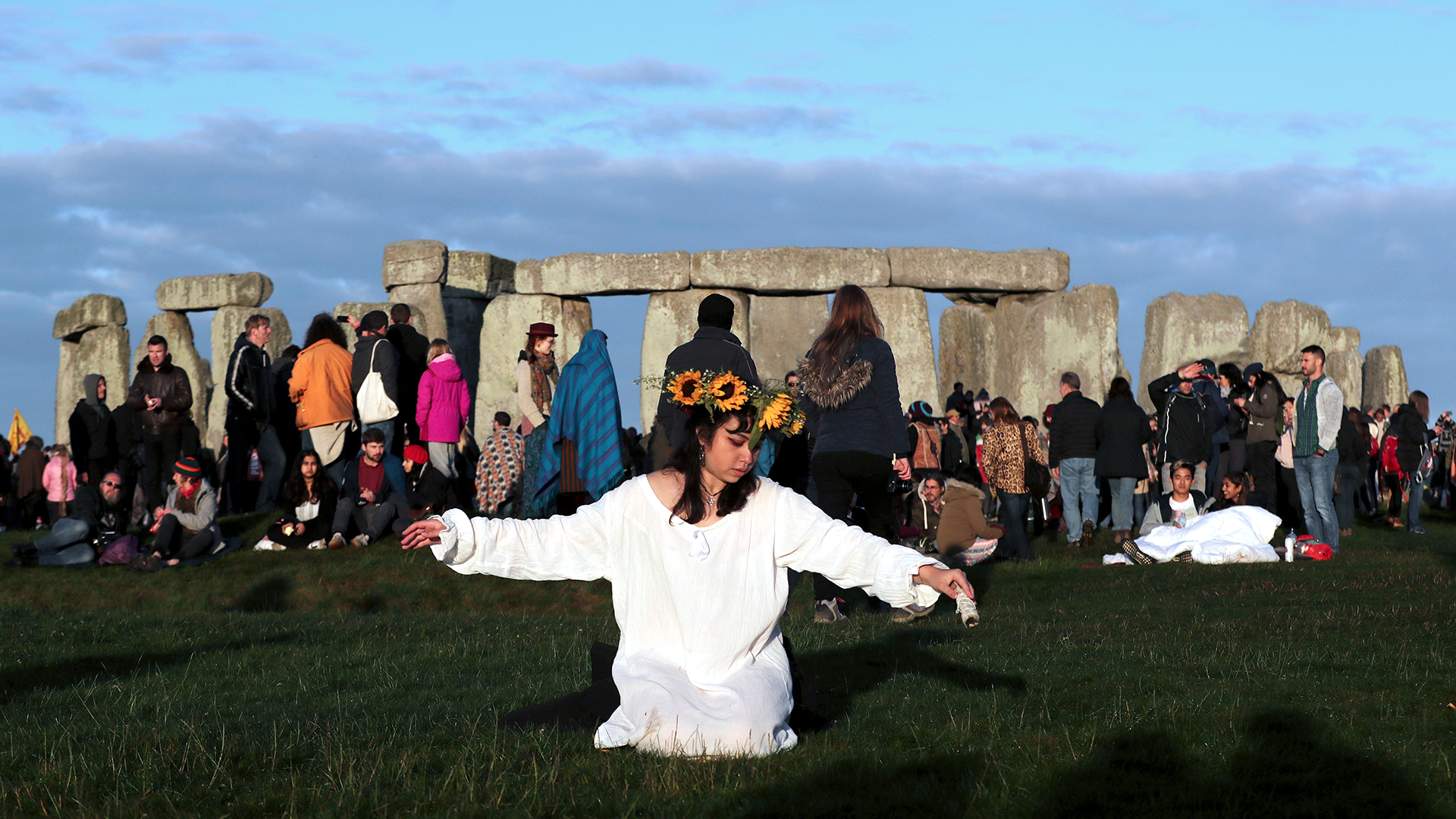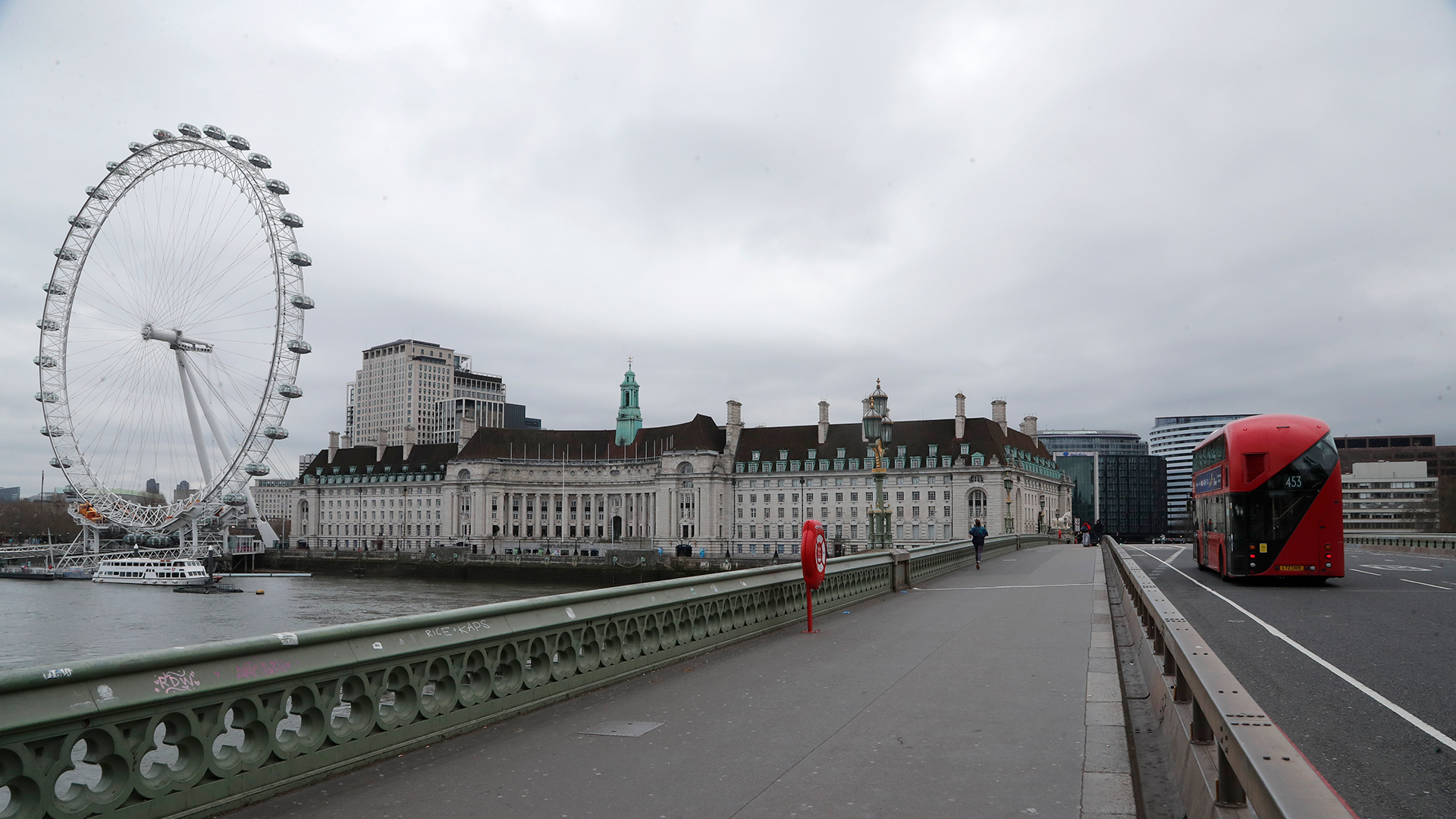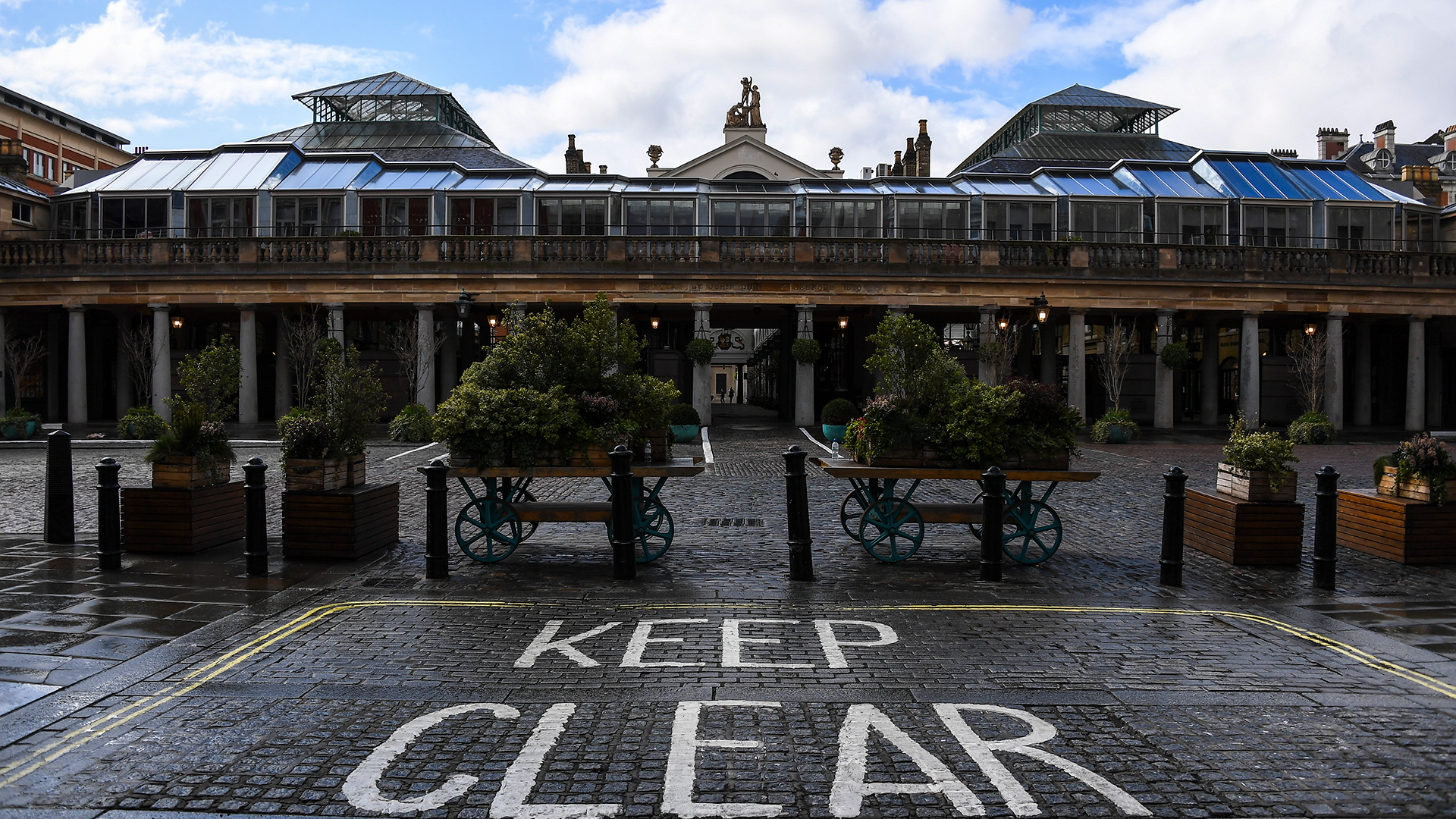Last weekend, 3.6 million people tuned in to watch dawn break over a cloudy Stonehenge for a virtual celebration of the summer solstice hosted by English Heritage. It meant visitors from all around the world were able to watch the sunrise from home, despite the long-distance journey to Britain during the COVID-19 pandemic.
Bringing the event online was one of the many ways that the British tourism industry is attempting to reinvent itself and offer new experiences for its visitors.
Going virtual
Normally, around 20,000 people would attend the summer solstice event at Stonehenge – where the ropes would be cut to allow people into the circle to celebrate the beginning of the day.

A reveler prays at sunrise as thousands gather at the ancient stone circle Stonehenge to celebrate the Summer Solstice near Salisbury, England, June 21, 2019. /AP
A reveler prays at sunrise as thousands gather at the ancient stone circle Stonehenge to celebrate the Summer Solstice near Salisbury, England, June 21, 2019. /AP
"This year we couldn't do that, so it was a virtual Summer Solstice," Louise Dando, head of marketing at English Heritage, told Xinhua. Due to the coronavirus and social distancing restrictions, many of those experiences have had to be shared online.
"We streamed it across the world, which allowed our audiences, say from China, to go online to the English Heritage website and see the sunrise and experience it, for the first time, from their living rooms," she said.
Dando believed it would be an opportunity "in a way," although they had never organized such an event internationally to this extent before the coronavirus outbreak.
Changes after lockdown
Alongside virtual events, the charity has also had to look at what changes would be brought by the pandemic after lockdown. Figureheads within the industry have been hosting meetings since the lockdown began to see how best to safely reopen sites for visitors.
"I think the most obvious thing... is introducing capacity limitations. We won't be having the volume of visitors you'd normally see," said Dando, who has frequented the meetings.
But with capacity constraints comes the issue of a decrease of income, however she remains optimistic that the financial flow will still be sustainable, hoping that many visitors will purchase something from the shop.

A lone jogger and a bus cross the Westminster Bridge during the coronavirus lockdown in London, March 30, 2020. /AP
A lone jogger and a bus cross the Westminster Bridge during the coronavirus lockdown in London, March 30, 2020. /AP
Another change that visitors will see to tourism hotspots in Britain is the introduction of one-way systems "where needed," Dando said.
"We've got lots of castles with narrow passages going through, so we've worked out one-way routes so everybody can enjoy their visit without bumping into people coming the other way," she said.
Impact on the industry
Despite efforts for the British domestic tourism industry to reinvent itself, there is no doubt that the lockdown has had, and will continue to have, an effect on the industry.
"The lockdown came at probably the worst time for the tourism industry – being Spring, when it's normally the kick-off for the travel season," Dando said. "In somewhere like Stonehenge, we normally welcome over a million visitors, but we're looking at around 500,000 visitors this year."

An empty venue of Covent Garden market in London that is normally bustling with tourists, March 29, 2020. /AP
An empty venue of Covent Garden market in London that is normally bustling with tourists, March 29, 2020. /AP
Meanwhile, there are some sites that will have to remain closed after the relaxation on July 4, namely some small, indoor and poorly-ventilated sites. She believes that they could remain closed until next year.
There is little data on just how badly the industry has been affected by the lockdown, but Dando remains optimistic that with the latest government guidance and the planned easing of lockdown restrictions on Saturday, the industry can bounce back.
Since June, outdoor areas have been open for visitors, which has seen a slow return of tourism to those sites over the last few weeks, according to Dando. Out of the over 400 sites that English Heritage cares for, six sites are currently open. On Saturday, 44 sites are set to be open and a similar amount from August 1.
(Cover: Revelers celebrate near Stonehenge stone circle at sunset, despite official Summer Solstice celebrations being cancelled near Amesbury, Britain, June 20, 2020. /VCG)
Source(s): Xinhua News Agency